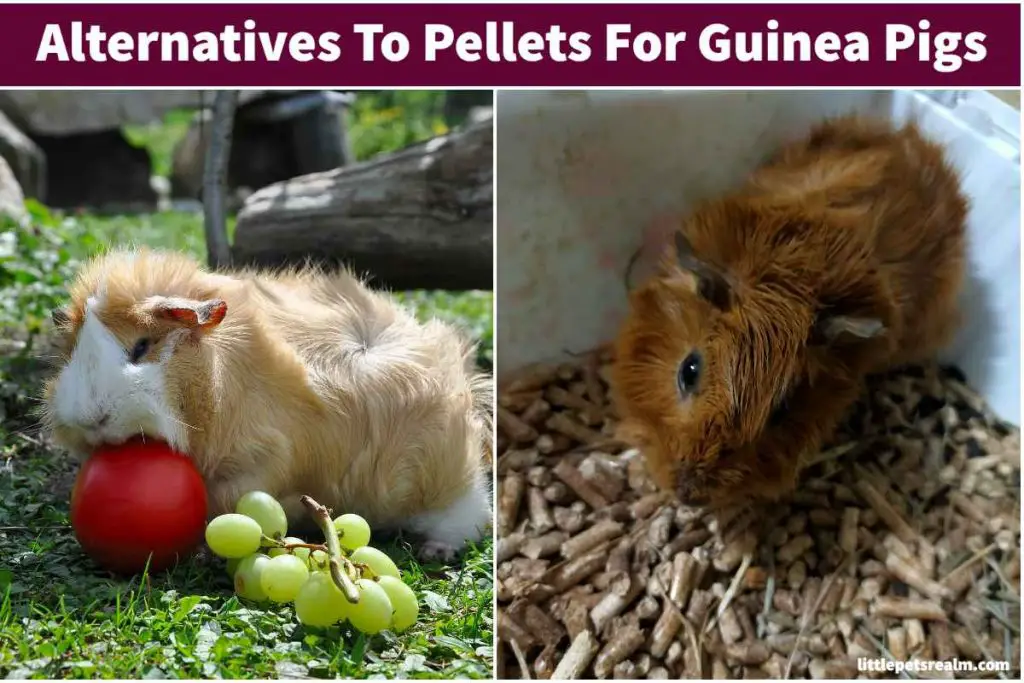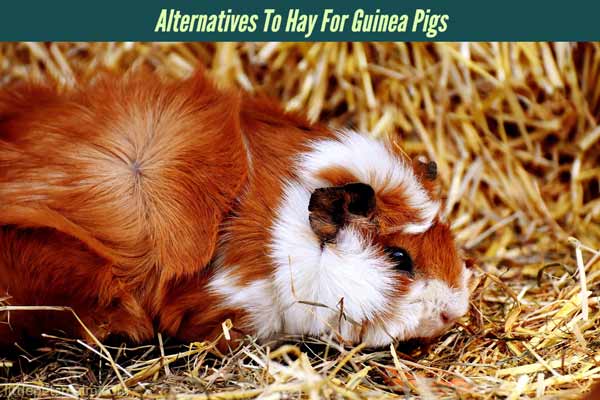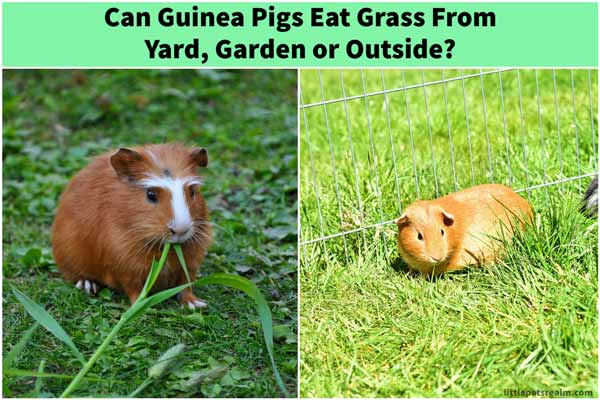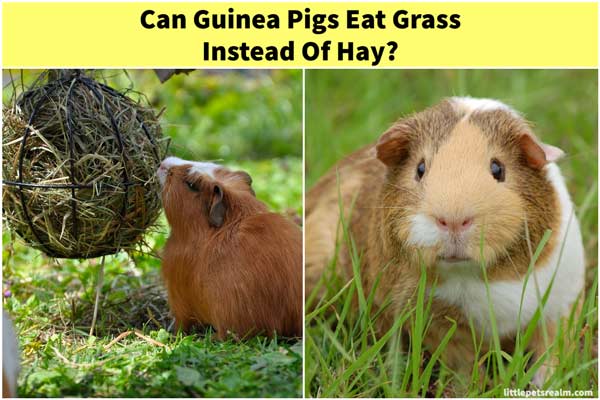Last updated on May 30th, 2022 at 09:04 am
Pellets are important foods for guinea pigs. But, you may go for an alternative to pellets when they don’t like pellets or you don’t want to add it to their diet. So, what can you feed guinea pigs instead of pellets?
If you do not feed your guinea pigs pellets, they should be fed adequate amounts of fresh vegetables and fruits as an alternative to ensure a balanced diet and nutrition including vitamin C, vitamin D, and minerals. However, if your guinea pigs don’t like specific pellets, you can switch the brand and see if they like that.
But, what are those vegetables and fruits that can fulfill the need for pellets? And, which pellets can be good for your little piggies if they don’t like a certain product?
Let’s find it out.
Table of Contents
Top 7 Alternatives to pellets for guinea pigs

If you run out of pellets, you should provide your guinea pigs with more fresh and green leafy vegetables, fruits to maintain the nutrition balance. It’s also necessary you give them unlimited hay that’s the main food for them. Besides, ensure that you give them an adequate amount of Vitamin C-containing foods and supplements.
Here are the foods that guinea pigs can eat instead of pellets if you run out of them.
1. Green leafy vegetables
When you can’t provide pellets, you have to feed your guinea pigs enough green leafy vegetables.
It’s to ensure that they get the recommended amount of vitamins and minerals, especially vitamin C that pellets offer.
They need 1 cup (110-220g) of leafy veggies everyday that contains a high amount of vitamin c.
Deficiency of vitamin C can lead to scurvy and it can be life-threatening to them.
Moreover, fiber is another essential nutrient for them. Green vegetables are rich in fibers that will help improve their digestive system.
You can give lettuce, spinach, parsley, kale, chards, cilantro, and other leafy vegetables daily.
2. Hay
Whether you provide guinea pig pellets, you must offer them hay as much as possible. Hay is the primary food for them.
So, you should always ensure the availability of hay. They will eat a lot of hay and like to chew on it.
Hay helps prevent diarrhea, them in the digestion process, and other diseases, and controls the excess growth of teeth.
All hay may not be good for your piggy’s health. Provide them fresh and clean Timothy or Alfalfa hay.
Our recommended product:
Timothy hay and Orchard hay
3. Fresh grass
Fresh grass is good food for guinea pigs if you can ensure the quality. You can have fresh grass from a farm near your residence or from your yard.
Just make sure the grass doesn’t contain any harmful lawn chemicals, herbicides, weeds, and clippings.
Fresh grass provides them with vitamins, minerals, and a lot of fibers. However, you shouldn’t give them too much of it.
Check out how you can feed fresh grass from your yard.
4. Fruits
Feed your guinea pigs different fruits that are rich in vitamins and minerals.
You can offer them apples, oranges, blueberries, pears, strawberries, papayas, kiwi, peaches, and other fruits that are safe for them.
However, the sugar that’s presented within fruit may increase the sugar level of the body of your piggies.
So, provide them once or twice a week and not too much at a time. Moreover, you have to know how to serve the fruit properly, as seeds and all parts of the fruit may not be good for them.
5. Others fresh vegetables
As pellets contain important nutrients that are essential for the little piggies, you need to offer them fresh vegetables everyday to maintain them.
Vegetables help to maintain calcium balance and provide essential nutrients and boost the immunity of your guinea pigs.
6. Vitamin C supplements
Since guinea pigs can’t produce Vitamin C in their body, you may provide them Vitamin C supplements. Pellet and green leafy vegetables can help maintain it. Vitamin C deficiency can result in a disease, called scurvy.
But, if you run out of pellets or don’t want to give it to them for some reason, you should provide vitamin C rich foods. This condition causes serious problems in piggy’s blood circulation that may be fatal. Moreover, it also affects bones and teeth severally.
However, you should always consult with a vet, if you think your piggies need vitamin C tablet, because you can’t give it them frequently.
7. Mixed vegetable and ColeSlaw
Pellets contain varieties of nutrients. So, you can make ColeSlaw or mix vegetables and fruits and offer them.
This can be a good alternative to pellets. You can use carrots, celery, cucumbers, lettuce, grapes, and other guinea pig’s friendly fruits and vegetables.
Check out more alternative food ideas for guinea pigs.
Things to consider when feeding your guinea pigs foods instead of pellets
Changing the food habit slowly
If your guinea pigs eat pellets regularly and you decide to introduce an alternative food, you will have to do it slowly.
They may not like switching the diet suddenly. Besides introducing new food quickly or with an excess amount can cause them digestion problems.
It can be stressful for them and change their overall mood and habits. So, do it gradually and also see if they like the new food.
Offering unlimited hay
Whichever food you give your guinea pigs, hay is the most essential food of all. It consists of 80% of their total diet.
So, make sure that they get the proper amount of hay along with foods and other alternatives to pellets.
Providing vitamin C rich foods
Pellets ensure your guinea pigs get the required amount of vitamin C everyday. On the other hand, guinea pigs can’t manufacture vitamin C on their own.
So, if you don’t give them pellet food, you must be careful of their vitamin C intake. Provide them foods and supplements rich in vitamin C to prevent diseases and other critical conditions.
Maintaining vitamin D
Pellets are also great to provide vitamin D. Indoor guinea pigs don’t get sunlight to produce vitamin D. So, you have to give vitamin D-rich fruits to prevent various diseases.
You should also take the piggies outside everyday for exposure to sunlight.
Ensuring a balanced diet
Though pellets aren’t the primary food for guinea pigs, they contribute a lot to their daily diet. Whether you give pellets, you must provide them with a balanced diet to keep them healthy and fit.
Besides, they need an adequate amount of fresh and clean water everyday to maintain their body.
Switching to a new food gradually
If you are using pellets and want to change to a different diet plan, you must do that slowly as guinea pigs can’t adapt to a fast change. So, introduce an alternative slowly.
Staying away from certain vegetables
You can feed your piggies any vegetables that you like. Some may be bad for them. Avoid vegetables such as avocado, cabbage, cauliflower, and others.
Avoiding dried fruits and grains
Don’t feed your little piggies dried fruits, grains, nuts, or seeds that can be bad for their health.
Not providing high carb diet
High carb and too sugary diets can be harmful to guinea pigs’ health. Those can cause obesity and digestive problems. So, choose a diet with caution.
Ensuring all important nutrients
Adult guinea pigs also need omega 3 for heart and omega 6 fatty acids for skin health. So, make sure the diet chart contains those important fatty acids.
Besides, pregnant or baby guinea pigs require proteins and calcium for their growth and lactation. So, you need to give unlimited alfalfa to them.
Being careful about treats and certain foods
Some foods are good as a treat and you can give them occasionally. But, you can’t use those to replace pellets and give regularly.
High carb or sugary fruits and treats are like that. Even, be aware of vitamin C tablets. You can’t use it frequently. Consult a vet if you believe your guinea pig needs that.
There are also some foods that you can give other pets, but you should never give your piggies. Learn about that.
Avoiding overfeeding
Sometimes we get too worried when we don’t have food like pellets. So, we feed piggies a lot to overcome it. Don’t do that.
Pellets aren’t that essential. Only maintain a balanced diet and don’t need to overfeed them.
Can guinea pigs live without pellets?
Guinea pigs can live without pellets without having any issues if you can maintain a balanced diet with unlimited hay and a required amount of fresh vegetables and fruits. In fact, many pets owners don’t provide their piggies pellets at all. The main thing is you have to ensure fibers, vitamin C, and D that pellets provide and replace them with that kind of food with the same nutrition value.
What to feed if your guinea pig doesn’t like pellets?
If your guinea pig doesn’t like to eat pellets, you can replace it with a new pellet from a different brand. If it doesn’t work, you can stop offering them any pellets and provide them other alternatives such as green leafy vegetables, fresh veggies, and fruits or make a new diet chart to maintain a balanced diet.
Check out the list above to get the full list of the alternatives to pellets.
Are guinea pig pellets necessary?
It’s not mandatory to feed your guinea pig pellets. Use it as a supportive food in addition to hay and fresh vegetables. However, a good quality pellet can provide a lot of nutrition and boost the immunity of your guinea pigs and make them healthy.
Which pellets should you buy if your guinea pigs don’t like a certain pellet product?
If your little piggies don’t like certain pellets, you should provide them with pellets from other brands. Moreover, you should know that all pellets aren’t good for them. Check the label of the product and learn which ingredients it has and what’s nutritional value.
1. Small Pet Select Guinea Pig Food Pellets
2. Hartz Guinea Pig Food Pellets
3. Wild Harvest Advanced Nutrition Diet
Takeaways
You can feed your guinea pigs more fresh and leafy vegetables to meet their daily need and replace pellets with that. Though pellets offer good nutrition to your little piggies, you don’t need to feed them pellets regularly if you are proving them with a balanced diet.

I am Pallab Kishore, owner of Little Pets Realm. I share important tips, advice and answer all the queries to solve various problems about small pets such as guinea pigs and hamsters on this website.



